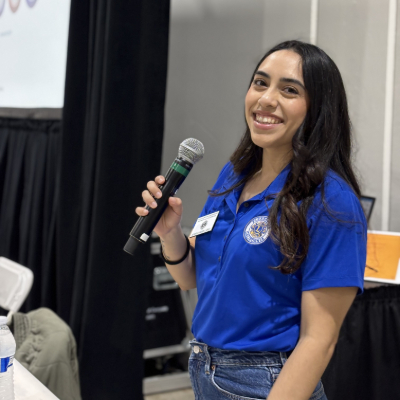By Audree Hernandez, Senior Account Executive
While listening to Beyoncé’s “Flawless” recently, I found myself pausing—again—at the sampled TEDx Talk from Chimamanda Ngozi Adichie: “We Should All Be Feminists”. I’ve heard it dozens of times, but this Women’s History Month, her words hit differently.
Maybe it was because of the volatile conversations happening around us: DEI, reproductive rights, even access to books that explore gender and identity. Maybe it was because her core message—that we are all shaped by culture but also capable of reshaping it—feels more urgent than ever.
Adichie’s talk reminded me that culture isn’t fixed. We actively create it every day—in our communities, in our relationships, and in our workplaces—and it’s our responsibility to build a culture that empowers groups while saving room for personal authenticity.
The Power of Community, Especially Now
In a time when many institutions are walking back progress, it’s easy to feel disheartened. We’re seeing decades of social movement work being challenged, and in some cases, quietly dismantled. But history has shown us that progress doesn’t disappear without resistance—it just changes shape.
Once upon a time, women shared information and organized in kitchens, churches, and salons. Today, those spaces are Slack channels, group chats, and side conversations before meetings. The means may change, but the core strength is the same: community.
And not just any community—diverse, inclusive, and emotionally honest communities. The kind that welcomes authenticity and values the “lollipop moments” that come from everyday acts of encouragement, recognition, or mentorship. Those small interactions have ripple effects.
But forming community isn’t the end goal. Sustaining it—especially across lines of difference—is where the real work lies. That means creating space where people can be themselves without needing to code-switch or perform a version of professionalism that wasn’t designed with them in mind.
Responding vs. Reacting: A Cultural Shift at Work
Leaders and managers can help create this kind of environment through better communication. One of the most important skills is learning how to respond instead of react. Reacting is immediate and often driven by emotion, while responding is thoughtful and grounded in listening.
Whether it’s receiving constructive feedback or navigating bandwidth challenges on a team, responding with care rather than reacting defensively can help foster trust. In a moment when so many people are operating under pressure—professionally, politically, personally—slowing down to listen is a quiet act of resistance against the culture of burnout and urgency.
As someone right on the cusp of millennial and Gen-Z, I find myself taking lessons from both generations’ work perspectives. The millennial philosophy reminds me to keep striving and stay grateful for opportunity. Gen-Z reminds me that boundaries are not only allowed but necessary. Right now, we’re seeing a new professional culture just starting to take shape—one that prioritizes wellness alongside ambition and values honesty over perfection.
Moving Forward with Intention
As we move beyond Women’s History Month, I’d encourage you to consider what kind of culture you’re helping create—inside and outside of work. Especially for those of us in marginalized communities, showing up as our full selves is an act of both courage and leadership.
So what would it look like to move with more intention? To respond instead of react? To build community that doesn’t just include, but empowers? These are questions I’ll be carrying forward. I hope you will too.
